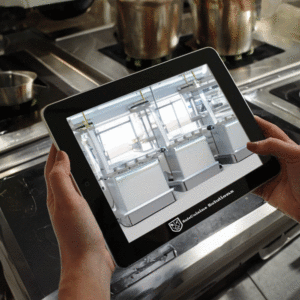
Automation has revolutionized various industries, and the food sector is no exception. In recent years, automated technologies have played a significant role in enhancing food safety and compliance efforts. By streamlining processes, reducing human error, and improving efficiency, automation offers numerous benefits to food establishments striving to maintain the highest standards of safety and regulatory compliance. In this blog post, we will explore the vital role of automation in ensuring food safety and compliance, and the advantages it brings to the industry.
Benefits of Automation in Food Safety and Compliance:
- Enhanced Accuracy and Consistency: Automated systems offer a high level of accuracy and consistency in food safety and compliance processes. By replacing manual tasks prone to human error, such as data entry, temperature monitoring, and inventory management, automation minimizes the risk of mistakes and ensures that processes are consistently executed according to predefined parameters. This accuracy translates into safer food practices and streamlined compliance efforts.
- Real-Time Monitoring and Alerting: Automation enables real-time monitoring of critical control points, such as temperature, humidity, and pressure. Automated sensors and monitoring devices continuously collect data and provide instant alerts if parameters deviate from predetermined thresholds. This immediate notification allows prompt corrective actions to be taken, minimizing the risk of food safety hazards and ensuring compliance with regulations.
- Improved Traceability and Recall Management: Automated systems facilitate efficient traceability throughout the food supply chain. By capturing and recording data at each stage of production, processing, and distribution, automation enables swift and accurate identification of potential contamination sources or issues. In the event of a product recall, automated systems can quickly trace affected batches or lots, minimizing the impact on consumers and enabling timely corrective actions.
- Streamlined Documentation and Reporting: Compliance with food safety regulations often requires comprehensive documentation and reporting. Automation simplifies this process by generating detailed reports, logs, and records automatically. This streamlines record-keeping tasks, reduces paperwork, and ensures accurate and up-to-date documentation, easing the burden of compliance for food establishments.
- Efficient Workflow Management: Automated systems optimize workflow management by digitizing and automating various processes. This includes tasks such as scheduling, inventory management, and quality control. By reducing manual labor and streamlining operations, automation improves efficiency, minimizes bottlenecks, and allows staff to focus on critical tasks related to food safety and compliance.
- Data Analytics for Continuous Improvement: Automation generates a wealth of data that can be analyzed to identify trends, patterns, and areas for improvement. Analytical tools enable food establishments to gain insights into their operations, pinpoint potential risks or inefficiencies, and make data-driven decisions to enhance food safety practices and compliance efforts.
Automation plays a crucial role in ensuring food safety and compliance in today’s fast-paced food industry. By enhancing accuracy, enabling real-time monitoring, streamlining documentation, and providing efficient workflow management, automation empowers food establishments to maintain the highest standards of safety and regulatory compliance. Embracing automated technologies not only improves operational efficiency but also strengthens consumer trust, reduces risks, and drives continuous improvement.
At SafeCuisine Solutions, we recognize the transformative impact of automation on food safety and compliance. Our team of experts can guide you in implementing automated systems tailored to your unique needs, helping you achieve optimal food safety and regulatory compliance outcomes. Let’s embrace the power of automation and build a safer, more efficient, and compliant food industry together.

